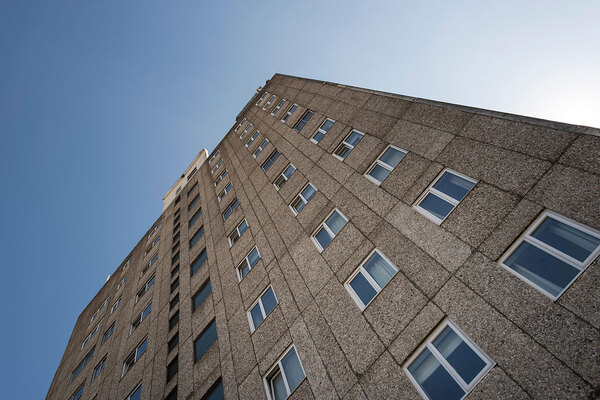Major HAs warn of hit to housebuilding over new rent cap plan
Major housing associations have warned that the government’s plans to introduce a tighter rent cap will hamper their development plans.
Yesterday, the Department for Levelling Up, Housing and Communities (DLUHC) launched a consultation on introducing a new temporary rent cap for social housing for the 2022-23 financial year.
A three per cent, five per cent and seven per cent rent cap have been put forward as options, but the government said five per cent is its preferred level.
Rosemary Farrar, chief financial officer at 46,000-home Platform, told Social Housing that even a seven per cent cap, based on where inflation is, would cost the group “hundreds of millions” in lost future income.
“It has to be made quite clear to government they are agreeing to a reduced build programme over the next few years,” she said. “You can’t magic up funds from nowhere, you only have a finite amount of money.”
The government’s own impact assessment, based on a five per cent cap, found that it would cost housing associations and councils £1.3bn in collective lost income in the next financial year, with this figure growing to £7.4bn by 2028.
Platform has already cut its housebuilding target. The group said last month that it is now aiming for annual completions to reach a “steady output” of 1,600 in 2025.
Other major landlords to have already cut their development plans include L&Q, which last year revealed that it was cutting its long-term housebuilding target by 70 per cent.
Ms Farrar added: “It has to be a balance between the financial health of a provider and protecting the needs of customers. I can’t believe any housing association would pass the full inflationary increase on.”
On the potential of a three per cent cap, she said: “This would cause a huge cut into what we can do, including providing services today and new homes for the future.”
Paul Hackett, chief executive of Optivo, which is in merger talks with Southern Housing to create a 77,000-home group, said that the new combined entity would look to cut back on its development spending based on the government’s proposals.
He said: “We would look to reduce development – that’s the discretionary spend we have. We wouldn’t want to delay building safety works – it doesn’t feel like a viable option or the right thing to do.”
Mr Hackett said that a five per cent rent cap would lose the new group £26m during the next financial year or £526m over 30 years.
But he said it strengthened the case for its merger with Southern because “if capacity is taken out of housing associations by sub formula rent increases, then having a larger cost base against which to drive efficiencies makes more sense”.
Paul Fiddaman, chief executive of Karbon Homes, also told Social Housing yesterday that housing associations will find it “increasingly challenging” to deliver new homes.
Labour’s shadow housing minister Matthew Pennycook warned that the proposed cut could lead to fewer social homes being built.
Sign up for the Social Housing Annual Conference 2022
The Social Housing Annual Conference is the sector’s leading one-day event for senior housing leaders, which delivers the latest insight and best practice in strategic business planning. The conference will provide multiple viewpoints and case studies from a variety of organisations from across the housing spectrum, including leaders in business and local and central government.
Join your peers for a full day of intensive, high-level learning, networking and informed debate addressing the most crucial topics surrounding finance, governance and regulation to help the sector understand and manage the pressures it faces.
Find out more and book your delegate pass here.
RELATED









